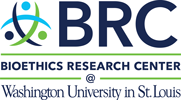Fostering Ethical Neurotechnology Academia-Industry Partnerships: A Stakeholder Engagement and Toolkit Development Project
GRANT
1R01MH130519
6/1/2022-5/31/2026
KEY PERSONNEL
- Tristan McIntosh, PhD
Principal Investigator -
James M. DuBois, DSc, PhD
Co-Investigator - Eric Leuthardt, MD
Co-Investigator - Joseph Culver, PhD
Co-Investigator
PROJECT MANAGERS
- Erin Solomon, PhD
Senior Scientist - Meredith Parsons, CHES
Senior Public Health Research Technician
DESCRIPTION
Industry-academia (IA) partnerships are critical for bringing neurotechnologies (e.g., implants) to market for public benefit. Neurotechnologies present unique ethical challenges compared to other health innovations: they can alter brain function and record and transmit brain activity. Competing priorities and values between academia and industry (e.g., transparency vs. protecting trade secrets) and competing internal missions within academia (e.g., innovation and entrepreneurship vs. managing conflicts of interest) raise the need to rethink existing rules and guidance governing IA neurotechnology partnerships. This project addresses a gap in our understanding of ethical complexities inherent to IA neurotechnology partnerships by engaging stakeholders to identify and develop a consensus about promising solutions and actionable guidance for navigating ethical complexities, mitigating risk, and balancing scientific values with fiduciary goals.
We will first conduct in-depth interviews with industry-academia neurotechnology stakeholders: 15 researchers; 15 clinicians; 15 patients; 15 leaders from a mixture of small, privately held and large, publicly held companies; 15 neuroethicists; 15 university officials who help regulate IA partnerships (e.g., conflicts of interest, research contracts); and 15 university officials who help cultivate IA partnerships (e.g., technology transfer, innovation and entrepreneurship). Interviews will identify risk factors and ethical challenges that emerge in IA partnerships, as well as areas where new or revised guidance and resources are needed. We will then use interview findings to inform a Delphi panel process to obtain informed consensus among stakeholders about best practices and solutions for mitigating risk and addressing ethical issues that emerge from IA partnerships. We will then use these recommendations to develop, disseminate, and evaluate a toolkit with resources to help stakeholders responsibly navigate IA partnerships.

